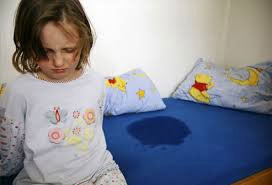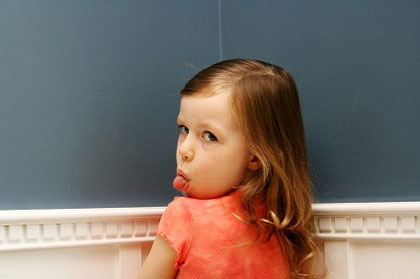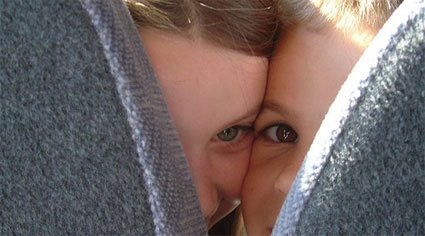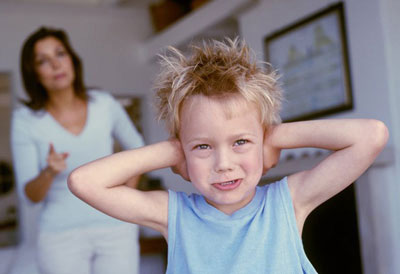Bed-wetting in children is also known as nocturnal enuresis. Read on to know about the factors that cause bed-wetting in children and tips for helping children to overcome bed-wetting problem. Bed-wetting is also known as nocturnal enuresis and is very common in children between three to eight years of age. It has been observed that around 60% of the kids are male and bed-wetting happens with them almost every night. Although bed-wetting can be considered to be a part of the symptoms of some underlying health issues, but in the majority of the cases, there is no real underlying condition that causes it. This health condition obviously does not entail that kid who wet their bed do it on purpose or can consciously avoid it at their will. Bed-wetting is by and large a developmental issue and can be dealt with understanding and patience. In this articleCauses of Bed-Wetting in ChildrenTips for Helping Child Overcome Bed-WettingSome Simple Steps to FollowCauses of Bed-Wetting in Children Underlying reasons may be responsible for bed-wetting in children. Heredity – It can play an integral role in your kid. If one or both of the parents have had this problem in their childhood, the kid is likely to suffer from the same by 50% of probability. In such cases, the child usually gets over the problem around the same age that his parents had in their respective childhood. Small Bladder – Some children are born with small bladder and they are likely to be a bed-wetter compared to the other kids. There can be some other associated health problems in the kid, like the valve that control the flow of urine from the bladder is not functioning properly. Besides these, there can also be other problems like urinary tract infection or constipation where the bladder feels enhanced pressure from the bowels, along with other factors as well. Delayed Consciousness – This is also termed as the delayed functioning of the brain. Some children do not develop their voluntary regulations and controls like the rest at a given age. They may not yet attain the bodily control over such exercises. Bed-wetting can be caused due this too. Stress – If the kid feels anxious or stressed out due to certain events occurring in his life, it can lead to a temporary phase of bed-wetting too. The event need not be as serious as illness of a family member or death; it can be as simple as a change of residence or change of school, or even the recent birth of a sibling or witnessing a quarrel between the parents or abuse of any kind. These can be triggering factors to children who have so far not wetted the bed before. Tips for Helping Child Overcome Bed-Wetting Here is how you can help your child overcome bed-wetting. A parent needs to be understanding and considerate. Never assume that the child can stop it at will or is doing it on purpose. The fact is that the body of the kid is not equipped well enough to control the urine flow while he is asleep, or there can be other medical conditions as well, which must be properly diagnosed. In most cases, the kids get over this problem by the time they are about 10-12 years of age when they learn to control their bodies more effectively. Some Simple Steps to Follow:Never rebuke the kid as it can irreparably damage his self-esteem.You can make sure that the kid is not taking in any fluid 2-3 hours before bedtime.Help him follow the routine of visiting the washroom before retiring to bed without fail.Often it is found that there is a drop in body temperature when the child is wets the bed. So you need to ensure that the kid is properly clothed and warm.You can also think of using diapers in order control the mess.You can build up a schedule using an alarm clock at regular hours at night so that the kid develops the habit of emptying his bladder at regular hours. The point is to be sympathetic towards the condition. At the primary stage if these simple regulations work, it is good, otherwise, it is always advisable to seek medical opinion on what might be the real cause and act accordingly.
Bed-wetting in children is also known as nocturnal enuresis. Read on to know about the factors that cause bed-wetting in children and tips for helping children to overcome bed-wetting problem. Bed-wetting is also known as nocturnal enuresis and is very common in children between three to eight years of age. It has been observed that around 60% of the kids are male and bed-wetting happens with them almost every night.
Although bed-wetting can be considered to be a part of the symptoms of some underlying health issues, but in the majority of the cases, there is no real underlying condition that causes it. This health condition obviously does not entail that kid who wet their bed do it on purpose or can consciously avoid it at their will. Bed-wetting is by and large a developmental issue and can be dealt with understanding and patience.
Causes of Bed-Wetting in Children
Underlying reasons may be responsible for bed-wetting in children.
Heredity – It can play an integral role in your kid. If one or both of the parents have had this problem in their childhood, the kid is likely to suffer from the same by 50% of probability. In such cases, the child usually gets over the problem around the same age that his parents had in their respective childhood.
Small Bladder – Some children are born with small
bladder and they are likely to be a bed-wetter compared to the other kids. There can be some other associated health problems in the kid, like the valve that control the flow of urine from the bladder is not functioning properly. Besides these, there can also be other problems like urinary tract infection or
constipation where the bladder feels enhanced pressure from the bowels, along with other factors as well.
Delayed Consciousness – This is also termed as the delayed functioning of the brain. Some children do not develop their voluntary regulations and controls like the rest at a given age. They may not yet attain the bodily control over such exercises. Bed-wetting can be caused due this too.
Stress – If the kid feels anxious or
stressed out due to certain events occurring in his life, it can lead to a temporary phase of bed-wetting too. The event need not be as serious as illness of a family member or death; it can be as simple as a change of residence or change of school, or even the recent birth of a sibling or witnessing a quarrel between the parents or abuse of any kind. These can be triggering factors to children who have so far not wetted the bed before.
Tips for Helping Child Overcome Bed-Wetting
Here is how you can help your child overcome bed-wetting.
A parent needs to be understanding and considerate. Never assume that the child can stop it at will or is doing it on purpose. The fact is that the body of the kid is not equipped well enough to control the urine flow while he is asleep, or there can be other medical conditions as well, which must be properly diagnosed. In most cases, the kids get over this problem by the time they are about 10-12 years of age when they learn to control their bodies more effectively.
Some Simple Steps to Follow:
- Never rebuke the kid as it can irreparably damage his self-esteem.
- You can make sure that the kid is not taking in any fluid 2-3 hours before bedtime.
- Help him follow the routine of visiting the washroom before retiring to bed without fail.
- Often it is found that there is a drop in body temperature when the child is wets the bed. So you need to ensure that the kid is properly clothed and warm.
- You can also think of using diapers in order control the mess.
- You can build up a schedule using an alarm clock at regular hours at night so that the kid develops the habit of emptying his bladder at regular hours.
The point is to be sympathetic towards the condition. At the primary stage if these simple regulations work, it is good, otherwise, it is always advisable to seek medical opinion on what might be the real cause and act accordingly.































